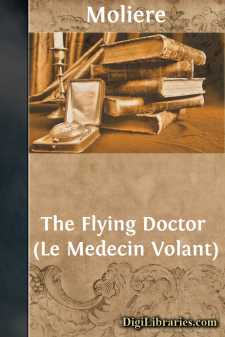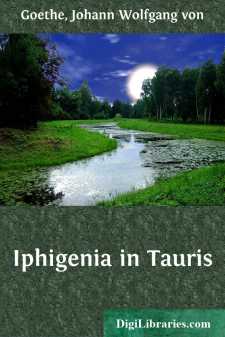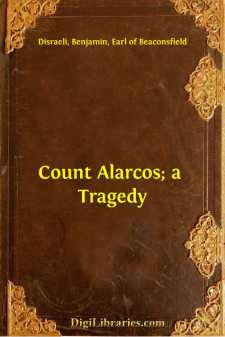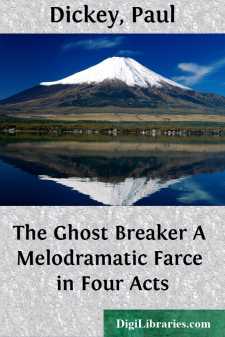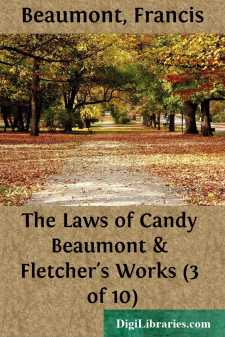Drama Books
Sort by:
by:
Moliere
SCENE I.——VALÈRE, SABINE. Val. Well, Sabine, what do you advise me to do? Sab. I have really much to tell you. My uncle is bent upon marrying my cousin to Villebrequin, and things have gone so far, that I believe the wedding would have taken place to-day if you were not loved by her. However, as my cousin told me the secret of all the love she feels for you, and as we were almost driven to...
more...
by:
Charles Macklin
INTRODUCTION During his extraordinarily long career as an actor, Charles Macklin wrote several plays. The earliest is King Henry VII; or, The Popish Imposter, a tragedy based on the Perkin Warbeck story, performed at Drury Lane 18 January 1745/6 and published the same year. As the Preface states, it "was design'd as a Kind of Mirror to the present Rebellion"; and it provided the author...
more...
MEASURE FOR MEASURE. ACT I. I. 1 Scene I. An apartment in the Duke’s palace. Enter Duke, Escalus, . Duke. Escalus. Escal. My lord. Duke. Of government the properties to unfold, Would seem in me to affect speech and discourse; 5 Since I am to know that your own science Exceeds, in that, the lists of all advice My strength can give you: then no more . . . . . . . . . . . . . . . . . . . . as your worth...
more...
by:
Mark Ambient
ACT I. Scene. The Doctor's consulting room. Ground floor, 13 Marmalade Street, Pimlico. (See Scene Plot.) (Aurora. the slavey, discovered laying out Doctor's letters lovingly on his writing table; she kisses each one as she lays it down—all are in blue envelopes.) Aurora. They're all for 'im—the dear doctor. Won't 'e be pleased when 'e comes back and finds all...
more...
At rise, is seen the entrance to a tent, out of which steps an animal-tamer, with long, black curls, dressed in a white cravat, a vermilion dress-coat, white trowsers and white top-boots. He carries in his left hand a dog-whip and in his right a loaded revolver, and enters to the sound of cymbals and kettle-drums.) Walk in! Walk in to the menagery,Proud gentlemen and ladies lively and merry!With avid...
more...
ACT THE FIRST. SCENE I. A Grove before the Temple of Diana. IPHIGENIA.Beneath your leafy gloom, ye waving boughsOf this old, shady, consecrated grove,As in the goddess' silent sanctuary,With the same shudd'ring feeling forth I step,As when I trod it first, nor ever hereDoth my unquiet spirit feel at home.Long as the mighty will, to which I bow,Hath kept me here conceal'd, still, as at...
more...
ACT I SCENE 1 A Street in Burgos; the Cathedral in the distance. [Enter Two Courtiers.] I:1:1 1ST COURT.The Prince of Hungary dismissed? I:1:2 2ND COURT.IndeedSo runs the rumour. I:1:3 1ST COURT.Why the spousal noteStill floats upon the air! I:1:4 2ND COURT.Myself this mornBeheld the Infanta's entrance, as she threw,Proud as some hitless barb, her haughty glanceOn our assembled chiefs. I:1:5 1ST...
more...
by:
Paul Dickey
THE CAST Princess Maria Theresa of Aragon. Warren Jarvis, of Kentucky. Nita, the Princess' Maid. House Detective, Manhattan Hotel. Rusty Snow, Warren Jarvis' Colored Servant. Detectives, from Police Headquarters. Hotel Porter. Steward, on S.S. Aquitania. Carlos, Duke d'Alva. Dolores, the Innkeeper's Daughter. Vardos, Messenger to the Missing Prince. Don Robledo, a Soldier of...
more...
by:
Francis Beaumont
Actus PrimusScena Prima Enter Gaspero, and Melitus MelitusSir, you're the very friend I wish'd to meet with,I have a large discourse invites your earTo be an Auditor. GasperoAnd what concerns it? MelitusThe sadly thriving progress of the lovesBetween my Lord, the Prince, and that great Lady,Whose insolence, and never-yet-match'd Pride,Can by no Character be well exprest,But in her only...
more...
ACT IV SCENE I. London. Before the Tower [Enter, on one side, QUEEN ELIZABETH, DUCHESS of YORK, and MARQUIS of DORSET; on the other, ANNE DUCHESS of GLOSTER, leading LADY MARGARET PLANTAGENET, CLARENCE's young daughter.]DUCHESSWho meets us here?—my niece Plantagenet,Led in the hand of her kind aunt of Gloster?Now, for my life, she's wandering to the Tower,On pure heart's love,...
more...


